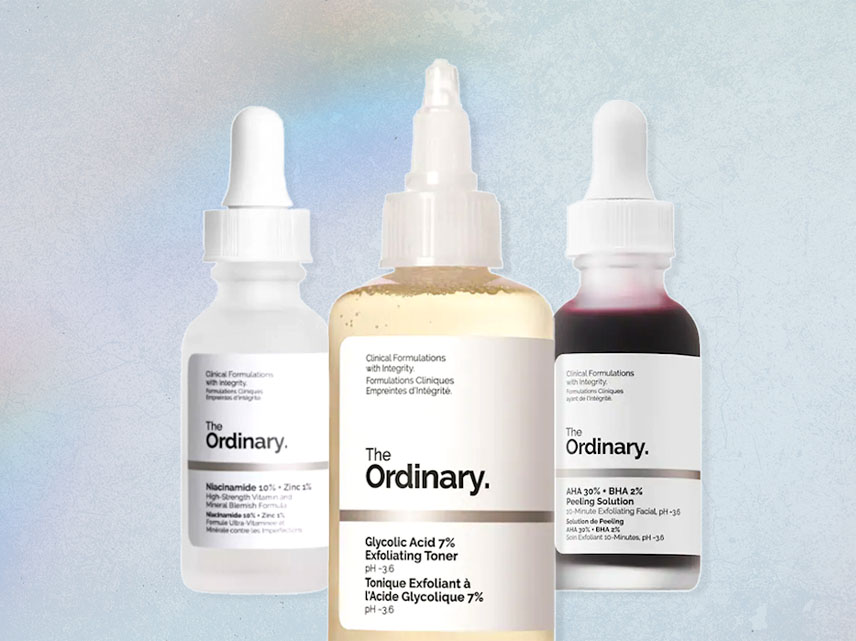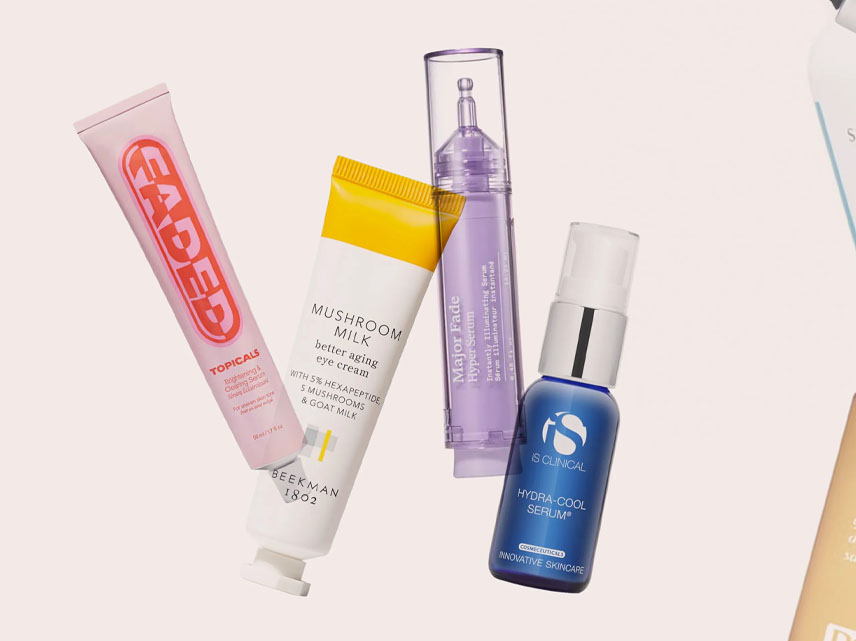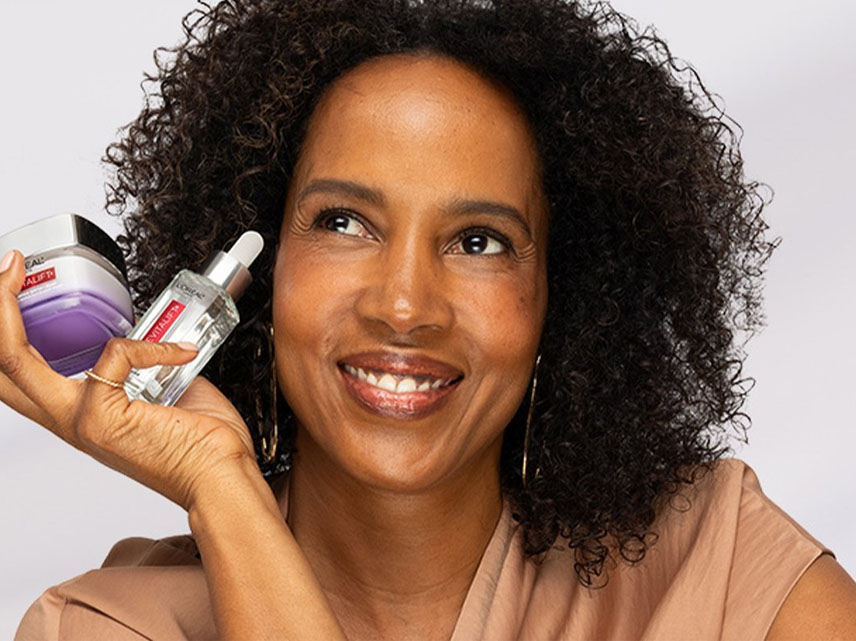Why Ignoring Your Dark Spots Might Be the Best Skincare Decision You Ever Make
There’s a quiet irony in skincare: the more we obsess over our imperfections, the more they seem to linger.

Recent Blogs
- How to Choose the Best Travel Insurance for Your 2025 Adventures
- The Tradwife Aesthetic in 2025: Embracing Vintage Femininity in Modern Fashion
- Embracing Darkly Chic: Fashion Inspiration from Lady Gaga's Mayhem Ball Tour 2025
- How to Layer Skincare Products the Right Way
- Feel Better with These 5 Yoga Poses
- Winter Layering Hacks That Actually Look Stylish in 2025
- Why Your Closet Feels Full but You Have Nothing to Wear?
June 25 04
There’s a quiet irony in skincare: the more we obsess over our imperfections, the more they seem to linger. Dark spots, those pesky patches of excess pigmentation, can feel like stubborn guests who refuse to leave. In our desperation to evict them, we often end up doing more harm than good.
But what if the real secret to fading dark spots lies not in aggressive routines, endless products, or constant mirror-checking, but in paying less attention to them?
Sounds counterintuitive, right? Let’s explore why letting go might be your skin’s greatest healing power, and how natural, gentle care can outshine the most hyped-up products in your beauty cabinet.
The Psychology of Skin Anxiety: When Worry Becomes the Problem
We’ve all been there, zooming in on our faces in the mirror, scrutinizing every freckle, every spot, every uneven patch. The more we look, the worse it seems. This isn’t just vanity; it’s anxiety in disguise.
Constantly worrying about dark spots can lead to:
- Stress-induced inflammation worsens pigmentation.
- Overuse of products causes skin barrier damage.
- A cycle of disappointment that affects self-esteem and overall well-being.
Here's the truth:
Dark spots don’t fade faster just because you’re watching them. Hyper-focus and product overload can backfire. Sometimes, the most radical skincare act is patience.
Why Over-Treating Leads to Over-Trouble
Skincare shelves today look more like chemistry labs than beauty aisles, with acids, retinoids, enzymes, and peels. While these can work when used correctly, layering too many ingredients or frequently switching products often leads to:
- Skin sensitivity and inflammation
- Barrier damage, causing more pigmentation
- Breakouts, which can lead to new dark spots
So not only are you not solving the problem, you may be making it worse, and spending a small fortune along the way.
The harsh reality?
You might be buying a new serum every month, but your skin just wants you to stop, breathe, and let it heal.
Natural Healing: Why Less Is More
Your skin is a living, breathing organ that wants to heal itself. Sometimes, all it needs is a little nudge in the right direction, gently and naturally. Here’s why natural remedies and a minimalist approach can be the safest, most effective long-term solution to dark spots.
Benefits of Going Natural:
- No harsh chemicals to disrupt your skin’s balance
- Lower risk of allergic reactions or long-term sensitivity
- Nourishes skin with vitamins, minerals, and antioxidants
- Aligns with your body’s natural healing rhythm
Let’s explore some simple but powerful ways to fade dark spots, without obsession, without stress, and without draining your wallet.
1. Aloe Vera – The Plant That Heals While You Sleep
Aloe vera isn’t just for sunburns. It’s rich in aloesin, a compound that can help lighten hyperpigmentation naturally. It also hydrates and calms the skin, creating a perfect environment for healing.
How to use:
Apply pure aloe vera gel on your dark spots every night before bed. Rinse in the morning. You’ll see calmer, brighter skin within weeks.
2. Licorice Root Extract – Nature’s Brightener
Licorice root contains glabridin, which helps inhibit melanin production. It's a gentle yet effective alternative to hydroquinone (a common but harsh skin-lightening agent).
How to use:
Mix a few drops of licorice root extract with your moisturizer or aloe gel. Apply directly to dark spots daily.
3. Turmeric – Golden Spice, Glowing Skin
This ancient remedy has powerful anti-inflammatory and antioxidant properties. Curcumin, its active compound, reduces pigmentation and calms irritated skin.
How to use:
Create a paste with turmeric powder, honey, and yogurt. Apply as a mask 2–3 times a week. (Yes, it might stain a little, so don’t wear your favorite white top!)
4. Vitamin C – Brightens Without Burning
Natural sources of vitamin C, such as rosehip oil or lemon peel extract, can brighten skin and reduce pigmentation over time.
Pro tip: Instead of applying lemon juice directly (which is too harsh), opt for rosehip seed oil—a gentler and more nourishing option.
5. Sunscreen – Your Everyday Armor
No matter what remedy you use, none of it will work unless you protect your skin from UV damage. Sun exposure is the #1 cause of dark spots, and the #1 reason they stick around.
Use a mineral-based sunscreen daily, even when indoors. Zinc oxide and titanium dioxide are your best friends here, natural, safe, and effective.
6. Hydration – Internal and External
Dry skin is more vulnerable to damage and slower to heal. Drinking enough water and using hydrating products helps your skin renew faster.
- Drink at least 8 glasses of water a day
- Use moisturizers with ingredients like hyaluronic acid, squalane, or shea butter
- Consider using a humidifier if you live in a dry climate
7. Gentle Exfoliation – Not Too Much, Not Too Little
Dead skin cells can trap pigmentation. But over-exfoliating can inflame and damage skin. Stick to gentle natural exfoliants like:
- Oatmeal scrubs
- Rice flour masks
- Lactic acid from yogurt
Limit exfoliation to 1–2 times per week.
Emotional Healing = Skin Healing
Let’s talk about something rarely mentioned in skincare: emotional health.
When we constantly obsess over dark spots or any perceived flaw, we create a stress loop that not only affects our confidence but also shows up on our skin. Cortisol (your stress hormone) increases inflammation and slows healing.
So yes, worrying makes your dark spots worse.
Break the cycle by:
- Practicing self-acceptance
- Limiting the time spent examining your skin
- Meditating or journaling to release skin-related stress
- Celebrating progress, not perfection
When you treat your skin with kindness, not criticism, it will reward you in return.
Trust the Process, Trust Your Skin
Dark spots are not permanent scars; they are stories your skin tells after inflammation, sun exposure, or hormonal shifts. But stories can fade. The key is not panic, not obsession, not an overflowing cabinet of 10-step routines. It’s faith + patience + simple, natural care. So next time you catch your reflection, instead of scrutinizing that tiny spot, smile at your skin. Love it a little more. Obsess a little less. And you might just find that your dark spots quietly fade away, not because you battled them fiercely, but because you gently let them go.
Comment:
Your email address will not be published. Required fields are marked *
Our Top Picks
No products found.








